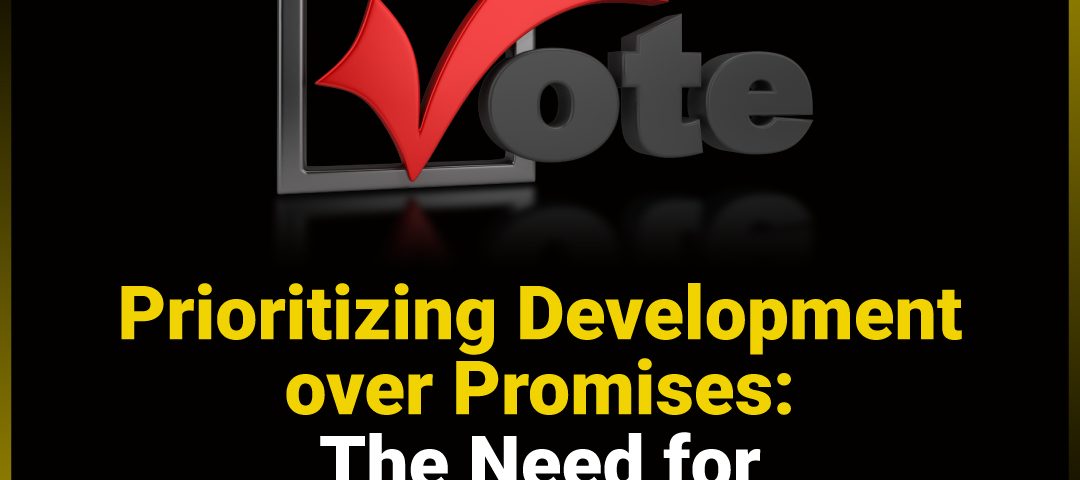Prioritizing Development over Promises: The Need for Responsible Voting

In a democratic society, the power to vote and elect political representatives is a fundamental right and a responsibility bestowed upon its citizens. However, there is a growing sentiment among the public that elected officials often fail to deliver on their promises, leading to disillusionment and a lack of trust in the political system. To address this issue, it is imperative that voters prioritize developmental works and infrastructural development over empty rhetoric and hold their elected representatives accountable.
![]() Jaigaon is lacking basic infrastructure such as improper and overflowing drainage, worsening road conditions, inadequate garbage disposal, and limited medical facilities.
Jaigaon is lacking basic infrastructure such as improper and overflowing drainage, worsening road conditions, inadequate garbage disposal, and limited medical facilities.
![]() The Era of Empty Promises:
The Era of Empty Promises:
For far too long, voters have been subjected to a barrage of empty promises and misleading statements during election campaigns. Politicians, in their pursuit of power, often make grand pledges to improve infrastructure, healthcare, education, and the overall welfare of the population. However, once elected, many of these promises remain unfulfilled or relegated to the backburner. This cycle of false assurances perpetuates a culture of cynicism and skepticism among voters, undermining the democratic process itself.
![]() Shifting Focus to Developmental Works:
Shifting Focus to Developmental Works:
To break free from this vicious cycle, it is essential that voters prioritize developmental works and infrastructural development when assessing political candidates. Instead of being swayed by catchy slogans or flashy campaigns, citizens should demand concrete plans and evidence of past accomplishments from aspiring politicians. By placing emphasis on the actual implementation of policies and projects, voters can create a more accountable political environment that ensures elected representatives are held responsible for their actions.
![]() Holding Elected Officials Accountable:
Holding Elected Officials Accountable:
The power of the vote extends beyond the ballot box. Voters must recognize their role in holding elected officials accountable for their performance. This can be achieved by fostering an informed electorate that actively monitors the progress of developmental initiatives. By demanding transparency and regular updates from politicians, citizens can ensure that projects are carried out efficiently, resources are allocated appropriately, and the desired outcomes are achieved. Such vigilance will compel elected representatives to focus on delivering tangible results rather than mere rhetoric.
![]() The Role of Civic Engagement:
The Role of Civic Engagement:
Responsible voting should not be confined to election cycles alone. Citizens should actively engage with their elected representatives throughout their tenure, fostering a continuous dialogue between the people and their government. By participating in meetings, public forums, and other interactive platforms, voters can voice their concerns, offer suggestions, and reinforce the importance of prioritizing developmental works. This ongoing engagement will create a sense of shared responsibility and mutual accountability between politicians and the electorate.—In an era of fake promises and misleading campaigns, it is crucial for voters to redefine the way they participate in the democratic process. By prioritizing developmental works and infrastructural development over empty rhetoric, citizens can usher in a new era of responsible voting. Holding elected officials accountable and actively engaging in the political discourse will ensure that promises turn into action and that the collective aspirations of the people are met. Let us build a future where our votes are not just symbols of hope, but catalysts for genuine progress and prosperity.
“Vote sensibly and responsibly.”
***






